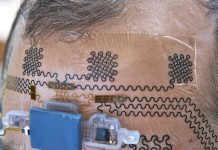
In a new study, researchers found that in autism, the brain and the gut share some same gene mutations.
This finding confirms the gut-brain connection in autism and can help explain why people with autism often suffer from gut problems.
The research was conducted by a team from RMIT University.
Scientists have been trying to understand autism have long been looking in the brain, but the links with the gut nervous system have only been recently examined.
Previous research has shown that the brain and gut share many of the same neurons.
One study of two brothers with autism in 2003 was the first to identify a specific gene mutation as a cause of autism.
This mutation affects communication by altering the “velcro” between neurons that keeps them in close contact.
That study also took detailed clinical notes of the brothers’ strong gut problems.
The current study was built on this clinical work with a series of studies on the function and structure of the gut in mice that have the same “velcro” gene mutation.
The team for the first time confirmed that the brain and the gut also share autism-related gene mutations.
The finding suggests the gut problems may stem from the same mutations in genes that are responsible for brain and behavioral issues in autism.
The mutations that affect connections between neurons could be behind the gut problems in many patients.
The new discovery confirms a gut-brain nervous system link in autism, and the team hopes it can open a new direction in the search for potential treatments that could ease behavioral issues associated with autism by targeting the gut.
One author of the study is Chief Investigator Associate Professor Elisa Hill-Yardin, RMIT University.
The study is published in Autism Research.
Copyright © 2019 Knowridge Science Report. All rights reserved.



